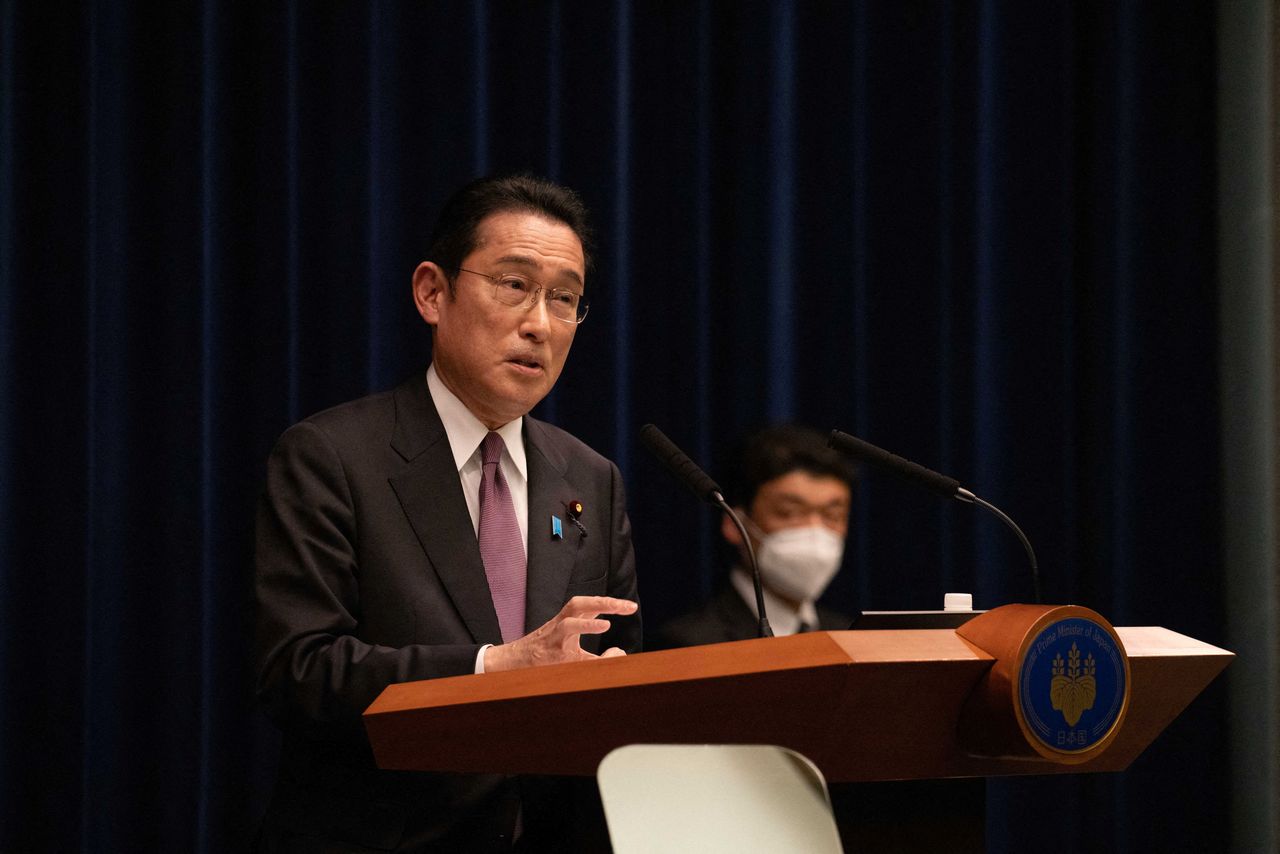Japan will not abandon Sakhalin-2 LNG stake, PM Kishida says
Newsfrom Japan
Economy Politics- English
- 日本語
- 简体字
- 繁體字
- Français
- Español
- العربية
- Русский

FILE PHOTO: Japanese Prime Minister Fumio Kishida holds a news conference in Tokyo, Japan, March 16, 2022. Stanislav Kogiku/Pool via REUTERS
TOKYO (Reuters) -Japan will not abandon its stake in the Sakhalin-2 liquefied natural gas (LNG) project in Russia as it is essential to energy security, Prime Minister Fumio Kishida said on Thursday, his clearest comments yet on Tokyo's plans for the development.
The Ukraine crisis has put Japan's involvement in the Sakhalin-2 project and similar ones in Russia in sharp focus since Western oil majors have said they would pull out in light of the Russian invasion of Ukraine. Russia calls its actions there a "special military operation."
While resource poor Japan has been ramping up sanctions against Russia, Tokyo has repeatedly said that Russian LNG is essential to energy security.
"Japan has a stake in Sakhalin 2, which is contributing to securing long-term, stable and low-priced supply of LNG. It is an extremely important project for Japan's energy security," Kishida told parliament.
"It is not our policy to withdraw," Kishida said, adding his government would continue seeking ways to reduce Japan's dependence on Russian energy sources.
Japanese leading trading houses Mitsui & Co and Mitsubishi Corp own stakes of 12.5% and 10% respectively in the Sakhalin 2 project, from which Shell has announced plans to exit.
Russia represents 4% of Japan's crude oil imports and 9% of LNG imports, making Moscow a vital energy supplier for Japan, particularly after fuel meltdowns at the Fukushima power plant in 2011 led to sharply lower usage of nuclear power reactors.
(Reporting by Kantaro Komiya, Kiyoshi TakenakaEditing by Muralikumar Anantharaman and Mark Potter)
(c) Copyright Thomson Reuters 2022. Click For Restrictions -
https://agency.reuters.com/en/copyright.html